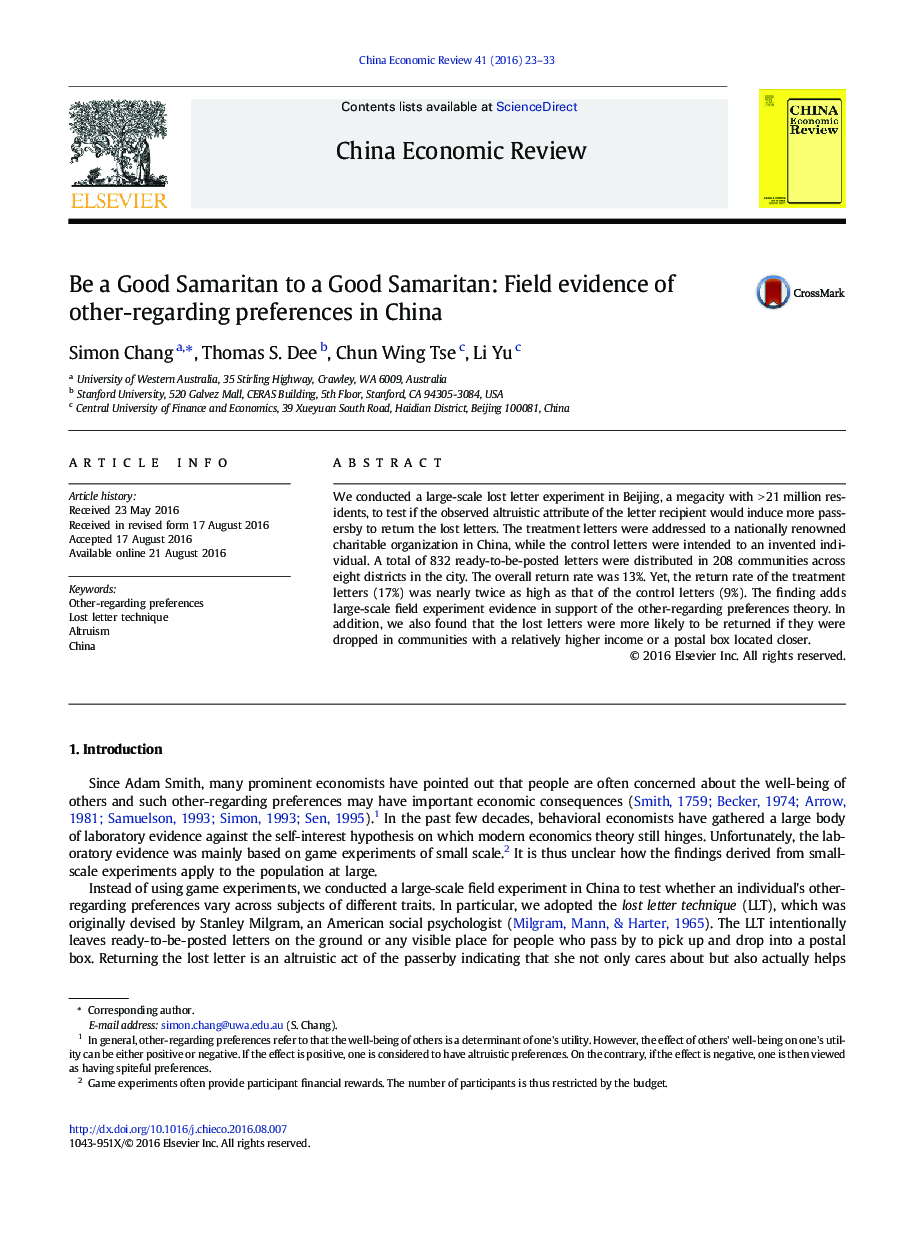| Article ID | Journal | Published Year | Pages | File Type |
|---|---|---|---|---|
| 5047235 | China Economic Review | 2016 | 11 Pages |
â¢A large-scale lost letter experiment was conducted in Beijing, capital city of China.â¢The experiment aimed to test if the altruistic attribute of the letter recipient would induce more letters to be returned.â¢The treatment letters were addressed to a nationally renowned charitable organization in China.â¢The control letters were intended to an invented individual.â¢A total of 832 ready-to-be-posted letters were distributed in 208 communities across eight districts in the city.â¢The return rate of the treatment letters (17%) was nearly twice as high as that of the control letters (9%).
We conducted a large-scale lost letter experiment in Beijing, a megacity with >Â 21 million residents, to test if the observed altruistic attribute of the letter recipient would induce more passersby to return the lost letters. The treatment letters were addressed to a nationally renowned charitable organization in China, while the control letters were intended to an invented individual. A total of 832 ready-to-be-posted letters were distributed in 208 communities across eight districts in the city. The overall return rate was 13%. Yet, the return rate of the treatment letters (17%) was nearly twice as high as that of the control letters (9%). The finding adds large-scale field experiment evidence in support of the other-regarding preferences theory. In addition, we also found that the lost letters were more likely to be returned if they were dropped in communities with a relatively higher income or a postal box located closer.
